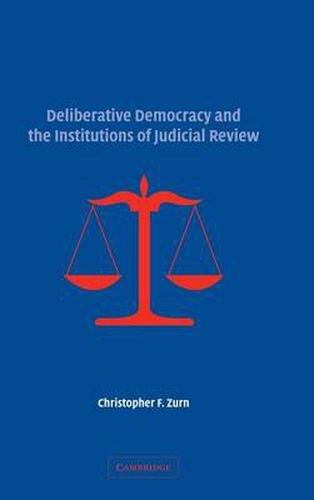Readings Newsletter
Become a Readings Member to make your shopping experience even easier.
Sign in or sign up for free!
You’re not far away from qualifying for FREE standard shipping within Australia
You’ve qualified for FREE standard shipping within Australia
The cart is loading…






In this book, Christopher F. Zurn shows why a normative theory of deliberative democratic constitutionalism yields the best understanding of the legitimacy of constitutional review. He further argues that this function should be institutionalized in a complex, multi-location structure including not only independent constitutional courts but also legislative and executive self-review that would enable interbranch constitutional dialogue and constitutional amendment through deliberative civic constitutional forums. Drawing on sustained critical analyses of diverse pluralist and deliberative democratic arguments concerning the legitimacy of judicial review, Zurn concludes that constitutional review is necessary to ensure the procedural requirements for legitimate democratic self-rule through deliberative cooperation. Claiming that pure normative theory is not sufficient to settle issues of institutional design, Zurn draws on empirical and comparative research to propose reformed institutions of constitutional review that encourage the development of fundamental law as an ongoing project of democratic deliberation and decision.
$9.00 standard shipping within Australia
FREE standard shipping within Australia for orders over $100.00
Express & International shipping calculated at checkout
In this book, Christopher F. Zurn shows why a normative theory of deliberative democratic constitutionalism yields the best understanding of the legitimacy of constitutional review. He further argues that this function should be institutionalized in a complex, multi-location structure including not only independent constitutional courts but also legislative and executive self-review that would enable interbranch constitutional dialogue and constitutional amendment through deliberative civic constitutional forums. Drawing on sustained critical analyses of diverse pluralist and deliberative democratic arguments concerning the legitimacy of judicial review, Zurn concludes that constitutional review is necessary to ensure the procedural requirements for legitimate democratic self-rule through deliberative cooperation. Claiming that pure normative theory is not sufficient to settle issues of institutional design, Zurn draws on empirical and comparative research to propose reformed institutions of constitutional review that encourage the development of fundamental law as an ongoing project of democratic deliberation and decision.